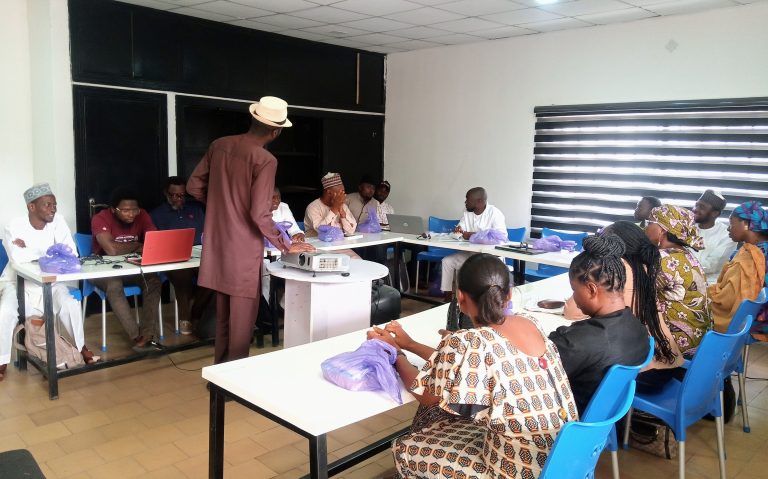By Philip Yatai
Education stakeholders in Kaduna State on Friday advocated for adequate digital literacy for teachers in public and private schools to improve learning and teaching outcomes in the state.
The stakeholders made the call in Kaduna during a dialogue on digital literacy, organised by Kaduna Basic Education Accountability Mechanism (KADBEAM) in collaboration with Emerald-Isle Foundation (EIF) and IHIFIX Foundation.
Ms Evelyn Ode, Founder Executive Director, EIF, explained that the goal was to develop strategies on how to leverage on technology to improve teaching and learning outcomes in Kaduna State.
Ode said that the dialogue was aimed at looking for ways to enhance digital skills among teachers and how digital skills could enhance learning among public and private school learners.
“We are hoping that the dialogue will provide an opportunity to enhance partnership and collaboration towards achieving expected outcomes of the state Development Plan on education,” she said.
Mr Martins Dangwa, Chairman, Evidence Technical Working Group, KADBEAM, explained that in spite of the state government commitment to improve digital literacy, not much had been achieved in the education sector.
Dangwa said that the government in its education policy committed to training teachers on new techniques and best practices using modern equipment like digital learning materials.
He added that the vision of the Kaduna State Development Plan was also to build a pathway for the transformation of the state into a digital economy for growth and development.
He, however, said that the budgetary provisions for digital literacy for teachers was very insignificant to drive the needed change on leveraging technology.
“In the state budget for basic education, only N460 million was allocated for teacher training on Information and Communication Technology (ICT).
“Also, most schools do not have the needed infrastructure and facilities like electricity, computers, digital library, and other digital devices for digital learning.
“This is an indication of low prioritisation of digital skill development for teachers,” he said.
Mr Munkaila Usman, Deputy Director, Monitoring and Evaluation, Ministry of Education, said that the government, with support from development partners, was doing all it could to improve the education environment.
Usman stressed the need for e-learning policy in the state to guide the implementation of digital literacy programmes and projects by government and development partners in the state.
Also, Mr Salim Sadiq, Senior Technical Adviser, Teaching and Learning, Partnership for Learning for All in Nigeria (PLANE) programme, noted the significance of technology in improving teaching and learning outcomes in schools.
Sadiq stress the need to equip teachers and School Support Officers with smart phones and other digital devises to improve teaching delivery, supervision and reporting.
Mr Abel Adejor, State Lead Facilitator, Partnership to Engage, Reform and Learn (PERL), a governance programme, called for advocacy to politicians to support the provision of ICT facilities for learning.
Adejor also stressed the need for improving budgetary allocation to entrenched technology in education system delivery.
Mr Leslie Dongh, Executive Director, Natsa Foni Foundation, stressed the need for resource mapping for digital learning for teachers and learners to support government efforts.
Responding, Mr Isitifanus Akau, State Partnership Facilitator, PERL, said that corporate organisations should be approached to support ICT infrastructure and human resources as part of their corporate social responsibility. (NAN)




